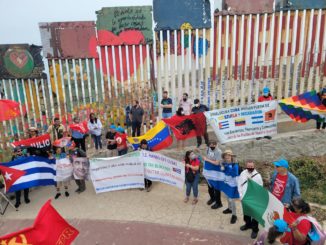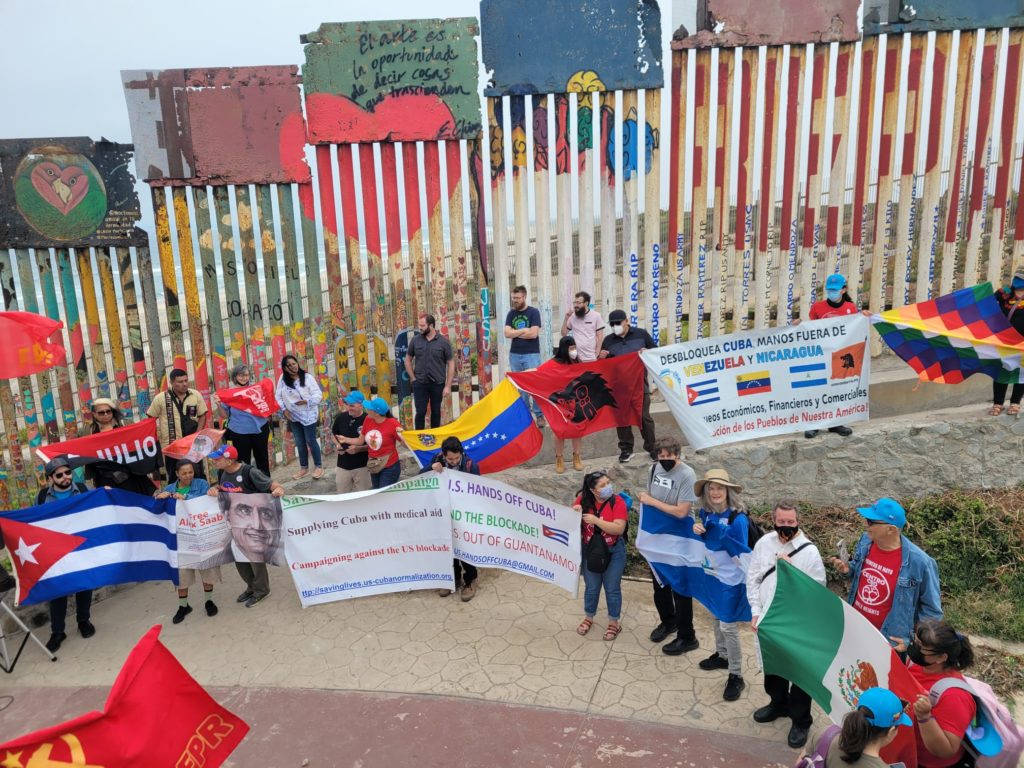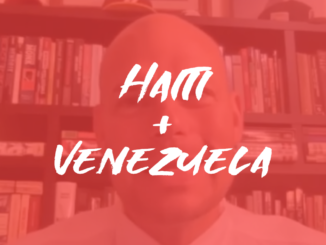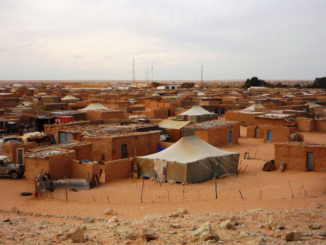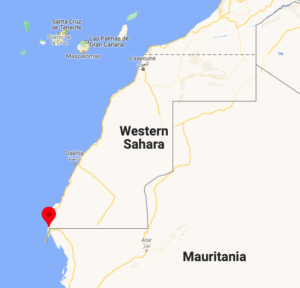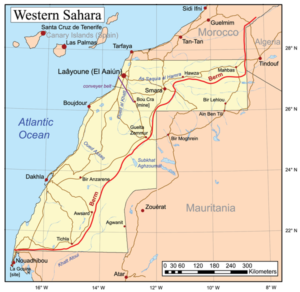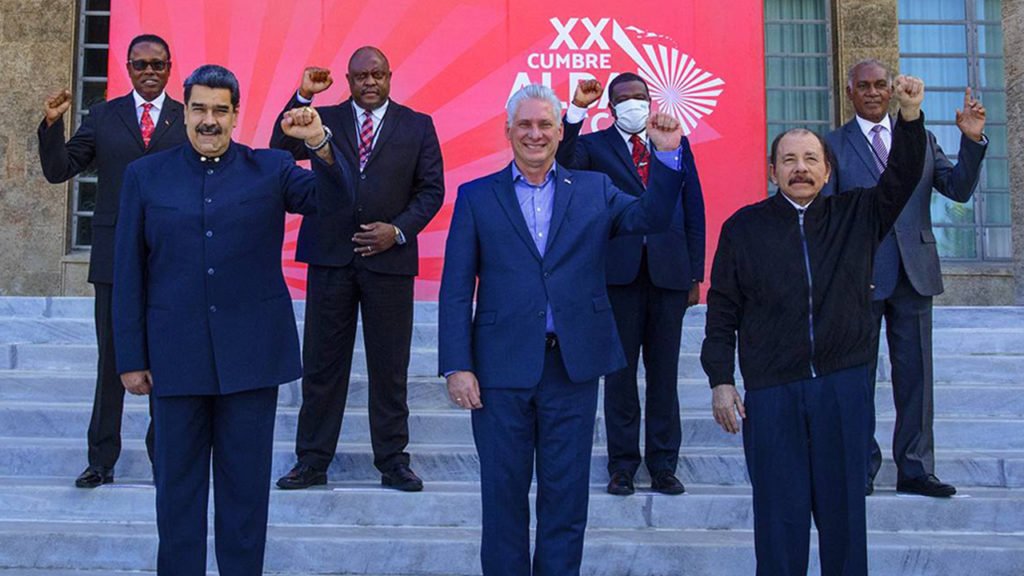
Editor’s Note: This article was first published by Multipolarista.
U.S. President Joe Biden’s top Latin America advisor has admitted U.S. sanctions against Russia over Ukraine intentionally seek to hurt Venezuela, Nicaragua and Cuba.
The United States imposed a series of harsh sanctions on Russia following Moscow’s recognition of the independence of the Donetsk and Lugansk People’s Republics in Ukraine’s eastern Donbas region on February 21, and its subsequent military intervention in Ukraine on February 24.
Juan S. González, Biden’s special assistant for Latin America and the U.S. National Security Council’s senior director for the Western Hemisphere, made it clear that these coercive measures against Russia are also aimed at damaging the economies of Venezuela, Nicaragua and Cuba.
Venezuela, Nicaragua and Cuba have socialist governments that Washington has long tried to overthrow. All three currently suffer under unilateral U.S. sanctions, which are illegal according to international law.
Former U.S. National Security Advisor John Bolton, an architect of the Iraq War, referred to these three Latin American nations as the so-called “Troika of Tyranny.”
Biden’s advisor González did an exclusive interview with Voz de América, the Spanish-language arm of the U.S. government’s propaganda outlet Voice of America, on February 25.
Voz de América published his comments in a report titled, “U.S. sanctions on Russia will impact Venezuela, Nicaragua, and Cuba, White House estimates.”
“The sanctions against Russia are so robust that they will have an impact on those governments that have economic affiliations with Russia, and that is by design,” González explained.
“So Venezuela is going to start feeling that pressure. Nicaragua is going to feel that pressure, along with Cuba,” he added.
Biden’s Latin America advisor noted that Washington has imposed sanctions on 13 top financial institutions in Russia, including some of the largest in the country. He proudly said that these coercive measures will, “by design,” harm other countries that do a lot of trade with the Eurasian power.
González also used his interview with the U.S.-funded Voz de América to reiterate Washington’s call for regime change against these three socialist governments in Latin America.
His comments were reported by the independent Bolivia-based news website, Kawsachun News.
Biden advisor: U.S. sanctions against Russia are 'designed' to impact Venezuela, Nicaragua and Cuba. pic.twitter.com/Zbqg3mgB2N
— Kawsachun News (@KawsachunNews) February 26, 2022
Venezuela, Nicaragua and Cuba Stand with Russia Against U.S. and NATO
Venezuela, Nicaragua and Cuba have stood with Russia against NATO expansion and Western military encirclement.
President Nicolás Maduro said that Venezuela “laments the mockery and breaking of the Minsk agreements by NATO, promoted by the United States of America.”
Maduro stressed that Washington and NATO bear responsibility for the conflict, and “have generated strong threats against the Russian Federation.”
Venezuela rechaza el agravamiento de la crisis en Ucrania producto del quebrantamiento de los acuerdos de Minsk por parte de la OTAN. Llamamos a la búsqueda de soluciones pacíficas para dirimir las diferencias entre las partes. El diálogo y la no injerencia, son garantías de Paz. pic.twitter.com/Y7N1lwZfpi
— Nicolás Maduro (@NicolasMaduro) February 24, 2022
Cuba blamed Washington for the crisis as well. Its Foreign Ministry stated, “The U.S. determination to continue NATO’s progressive expansion towards the Russian Federation borders has brought about a scenario with implications of unpredictable scope, which could have been avoided.”
Denouncing Western governments for sending weapons to Ukraine, Cuba declared, “History will hold the United States accountable for the consequences of an increasingly offensive military doctrine outside NATO’s borders, which threatens international peace, security and stability.”
The U.S. determination to continue NATO’s progressive expansion towards the Russian Federation borders has brought about a scenario with implications of unpredictable scope, which could have been avoided.
1/5Statement by the Revolutionary Government:
📄https://t.co/3iBcPD9j8x pic.twitter.com/MRgwRCWSMV— Bruno Rodríguez P (@BrunoRguezP) February 27, 2022
Nicaragua’s President Daniel Ortega condemned Washington for sponsoring a 2014 coup in Ukraine, and joined Russia in recognizing the Donetsk and Lugansk People’s Republics.
The chairman of Russia’s State Duma, Vyacheslav Volodin, traveled to Nicaragua to meet with top officials from the Sandinista government, and thanked them for their support against NATO expansion and U.S. threats.
🇳🇮🇷🇺 #Nicaragua recibió a una delegación de alto nivel de #Rusia, encabezada por el Presidente de la Duma Estatal de la Cámara Baja, Vyacheslav Volodín. La visita tiene por objetivo fortalecer la cooperación y la solidaridad bilateral. pic.twitter.com/BMY1AjnviF
— JP+ (@jpmasespanol) February 24, 2022
Ben Norton is editor of Multipolarista.

